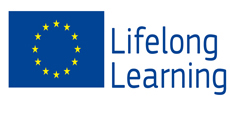
The fundamental values of the European Union should allow every
European citizen to have access to quality education, especially in
their younger years. Provided they acquire basic skills such as reading
and writing, better-qualified European citizens tend to find better-paid
jobs, whilst European society as a whole benefits from new talent.
Yet amongst European citizens, some are denied these most basic rights – as
a result of discrimination and a vicious circle in which poverty robs people of
the opportunities they need to build a better life. Many communities throughout
Europe have not yet been fully able to exercise their right to education.
This means they are denied the chance to contribute to the general prosperity
of society. Perhaps no community has suffered racist discrimination and
extreme poverty as much as the Roma.
Roma identity and culture belong without doubt to the most marvellous and enduring
aspects of our shared European heritage. It is a community that has been part
of European society for many centuries. In more recent times, a period of upheaval
and turmoil has led to marginalisation, which all too often translates into scapegoating,
especially against the backdrop of the present economic crisis.
Roma certainly experience discrimination when it comes to education, which in turn
compromises their educational and training outcomes. Many Roma children do not
complete school at all. Many families do not even see the point of securing an education
for their children.
Every child should be given the best possible chance to get an education: this is
the European Union’s commitment. Education equips citizens with the knowledge
and skills they need for their lives in a society that is becoming ever more complex.
Education and training enhance everybody’s potential to secure a rewarding job.
It is the key that allows citizens to participate meaningfully in the democratic life
of European society.
Given the urgent need for sustainable growth across Europe, we now face a set of
challenges that are directly related to education and training. The European Union
will never achieve the objectives of its ‘Europe 2020 Strategy’ if it ignores the most
socially excluded members of society – for they are an essential part of the solution.
With a total population of between eight and 12 million, half of which is below the
age of 25, the Roma communities remain far below their potential when it comes
to education. This is everybody's loss.
Awareness of the social exclusion and stigmatisation of the Roma communities
has been growing over the past few years. The ‘10 Common Basic Principles for
Roma Inclusion’ are now the commonly accepted guidelines for efficient action,
built around four pillars: education and training; employment; housing; and health.
This policy provides the rationale for targeting the Roma communities ‘explicitly,
but not exclusively’ so as to address their difficulties efficiently. Furthermore, an
integrated approach is required to combine education with the other three pillars.
At the Commission’s invitation, Member States recently presented their ‘National
Roma Integration Strategies’ in which education is recognised as a prerequisite to
improve the professional and economic status of future Roma generations. We are
now working with all concerned stakeholders, the National Contact Points, as well
as Roma communities to make sure that no opportunities are missed, and that the
voices of all those concerned are heard when it comes to devising and implementing
such strategies.
The European Union has brought peace and prosperity to a continent historically ravaged
by war. We cannot allow neglect, distrust and discrimination to undermine this
precious achievement, which belongs to all citizens irrespective of their origin. The
work of nurturing this legacy, and carrying it into the future, begins in our schools.
Androulla Vassiliou
European Commissioner for Education, Culture, Multilingualism and Youth
Source: Roma and Education: Challenges and Opportunities in the European Union
© European Union, 2012







